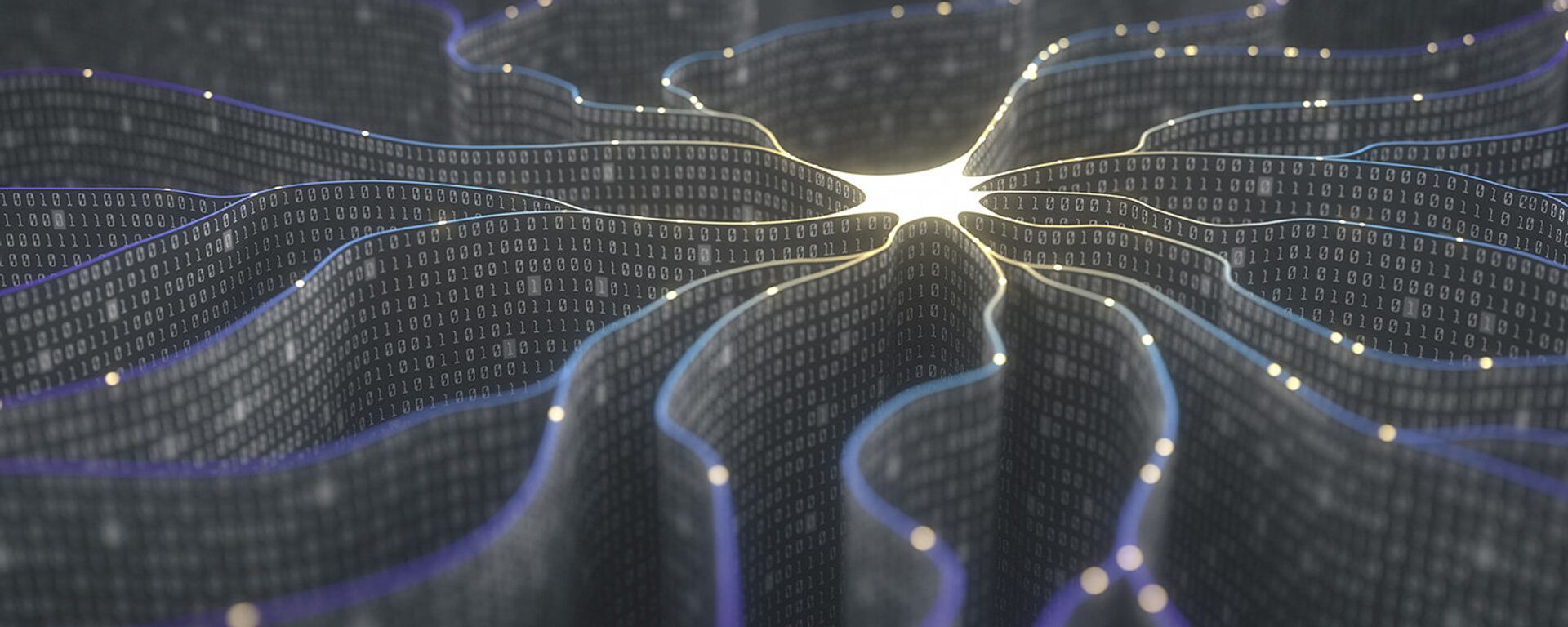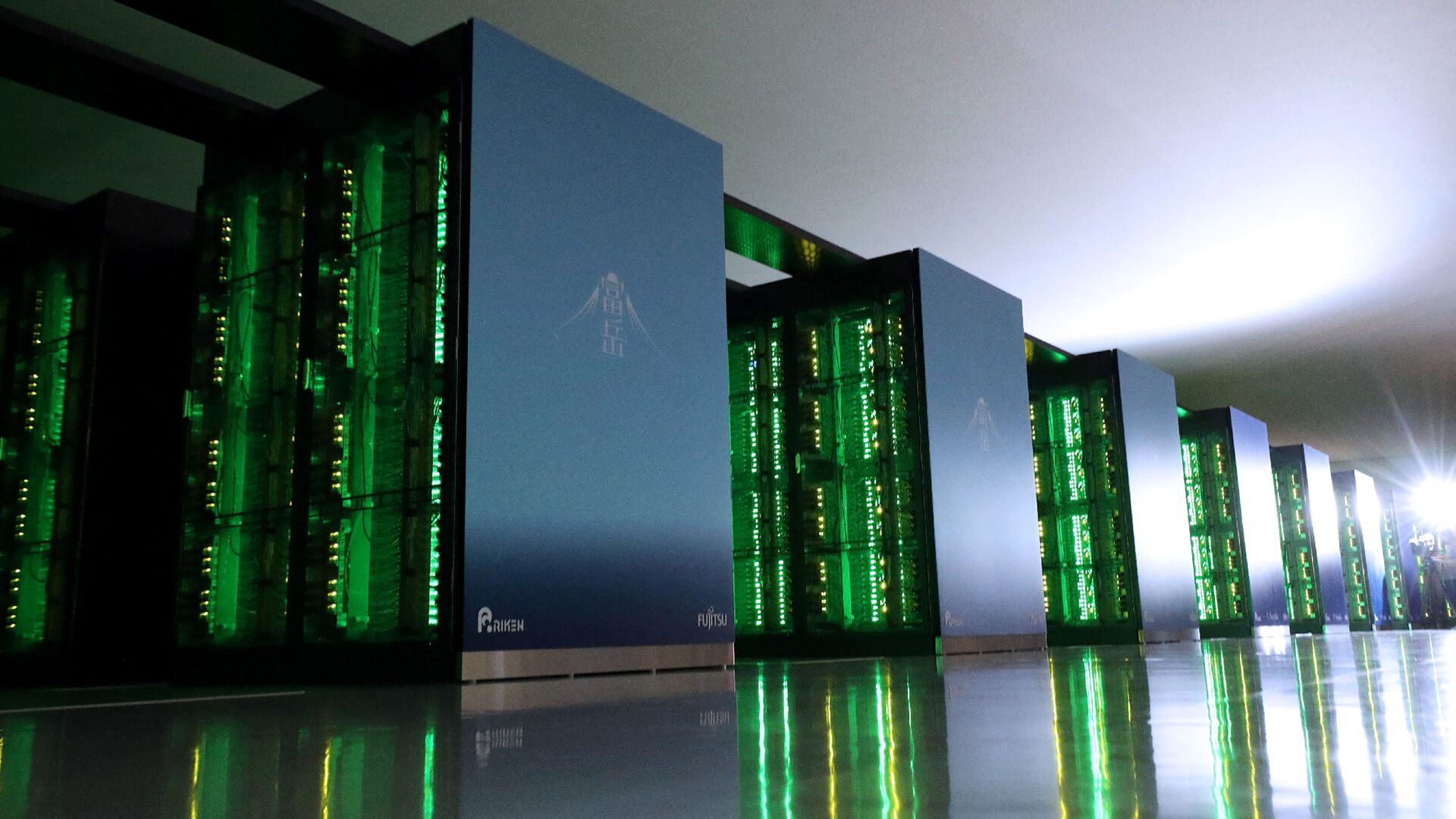https://sputnikglobe.com/20230228/not-sci-fi-anymore-biocomputers-using-human-brain-cells-may-soon-be-reality-scholars-say-1107870922.html
Not Sci-Fi Anymore: Biocomputers Using Human Brain Cells May Soon Be Reality, Scholars Say
Not Sci-Fi Anymore: Biocomputers Using Human Brain Cells May Soon Be Reality, Scholars Say
Sputnik International
According to researchers, computers with biological brain tissue can feel the gap between cold-hard machinery and the human mind. What is more important, they... 28.02.2023, Sputnik International
2023-02-28T14:13+0000
2023-02-28T14:13+0000
2023-02-28T14:26+0000
science & tech
computers
computing power
https://cdn1.img.sputnikglobe.com/img/07e5/05/11/1082913160_0:156:3001:1844_1920x0_80_0_0_9a749646a718f3110b8b9f049ea9d6ac.jpg
Futuristic biocomputers that use human brain cells can soon become quite real. A new study conducted by Johns Hopkins University's scientists and published in "Frontiers in Science" shows that it is possible to use brain organoids taken from tiny human skin samples, thereby revolutionizing the hi-tech industry.The scientific team used brain tissue the size of a pen dot for experiments, sort of like biological hardware. The researchers stress that although computers can outmatch the human brain in calculations, when it comes to making complex logical decisions they fall short.The specialists began to grow and assemble brain cells into functional organoids using human skin samples. Then they reprogrammed these cells into embryonic, stem cell-like states. The scientific team hopes to construct a supercomputer with these organoids. They believe that these biological parts will decrease the energy-consumption demands of AI.The scientific exploration also opens the door to new research into neuroscience.
https://sputnikglobe.com/20190913/russian-scientists-biomorphic-neuron-imitate-brainwork-1076787176.html
Sputnik International
feedback@sputniknews.com
+74956456601
MIA „Rosiya Segodnya“
2023
Sputnik International
feedback@sputniknews.com
+74956456601
MIA „Rosiya Segodnya“
News
en_EN
Sputnik International
feedback@sputniknews.com
+74956456601
MIA „Rosiya Segodnya“
Sputnik International
feedback@sputniknews.com
+74956456601
MIA „Rosiya Segodnya“
science & tech, computers, computing power
science & tech, computers, computing power
Not Sci-Fi Anymore: Biocomputers Using Human Brain Cells May Soon Be Reality, Scholars Say
14:13 GMT 28.02.2023 (Updated: 14:26 GMT 28.02.2023) According to researchers, computers with biological brain tissue can feel the gap between cold-hard machinery and the human mind. What is more important, they can enhance our understanding of how the brain works.
Futuristic biocomputers that use human brain cells can soon become quite real. A new study conducted by Johns Hopkins University's scientists and published in "
Frontiers in Science" shows that it is possible to use brain organoids taken from tiny human skin samples, thereby
revolutionizing the hi-tech industry.
"Biocomputing is an enormous effort of compacting computational power and increasing its efficiency to push past our current technological limits," the research team claims.
The scientific team used brain tissue the size of a pen dot for experiments, sort of like biological hardware. The researchers stress that although computers can outmatch the human brain in calculations, when it comes to making complex logical decisions they fall short.

13 September 2019, 11:20 GMT
“The brain is still unmatched by modern computers. Frontier, the latest supercomputer in Kentucky, is a $600 million, 6,800-square-feet installation. Only in June of last year, it exceeded for the first time the computational capacity of a single human brain — but using a million times more energy,” the lead scientist stated.
The specialists began to grow and assemble brain cells into functional organoids using human skin samples. Then they reprogrammed these cells into embryonic, stem cell-like states. The scientific team hopes to construct a
supercomputer with these organoids. They believe that these biological parts will decrease the energy-consumption demands of AI.
The scientific exploration also opens the door to new research into neuroscience.
“This opens up research on how the human brain works. Because you can start manipulating the system, doing things you cannot ethically do with human brains,” the researcher claims.




